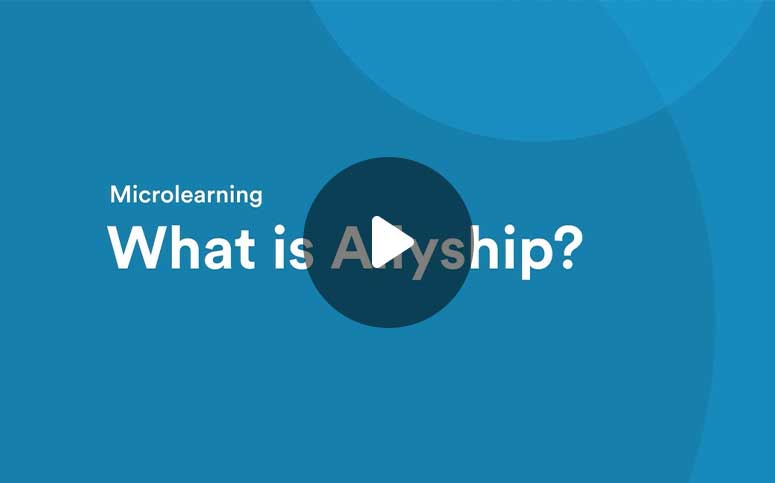How does Allyship advance DEI?
Allyship fosters an inclusive culture where everyone can thrive, helps marginalized groups feel like they belong, and creates psychologically safety.
For example, research shows that when people with marginalized identities speak up about discrimination, they are more likely to be dismissed than when people who don’t hold those same identities speak up about the same behavior. Similarly, research suggests that when people from underrepresented backgrounds advocate for diversity, they can face a range of consequences. When allies play an active role, they can remove some of the burden on people from marginalized and/or underrepresented groups.
What is an example of allyship?
Allyship actions are wide-ranging, and can include:
Calling out bias, Slowing down conversations or decisions to ensure all perspectives are considered, and Giving up opportunities to create space and opportunities for others
Who needs allies?
This depends on the scenario, who holds privilege, and who is marginalized. Identity is complex: there may be some situations where a person has privilege and others in which they are marginalized. For example, a person using a wheelchair may benefit from allies advocating for more accessible physical workspaces. That same person may be able to be an ally by calling out a biased comment from a person who shares their gender regarding a colleague of a different gender.
What is privilege?
Privilege is a set of special rights, advantages, or immunities accorded to a particular group.
What is a marginalized group?
Marginalized groups are those that are underrepresented, stigmatized, or otherwise undervalued in society.

 Our website uses cookies to distinguish you from other users of our website. This helps us to provide you with a good experience when you browse our website and also allows us to
improve our site. By continuing to browse our website, you’re agreeing to our use of cookies. For more information, please read our
privacy policy.
Our website uses cookies to distinguish you from other users of our website. This helps us to provide you with a good experience when you browse our website and also allows us to
improve our site. By continuing to browse our website, you’re agreeing to our use of cookies. For more information, please read our
privacy policy.






